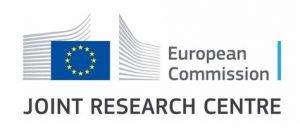Partners
The LAMASUS consortium is built to deliver its overall ambition, and features world-leading interdisciplinary expertise in all domains necessary for the successful delivery of the project’s objectives, including expertise in integrating knowledge across disciplines. The consortium harnesses the decades of experience in policy maker support on the science policy interface and has key expertise in econometrics, social sciences, and modelling of land-use, earth and climate systems, biodiversity, sectorial economics, and land management.
The LAMASUS consortium consists of 17 partners from 9 countries in Europe (Austria, Belgium, Germany, the Netherlands, France, Spain, Norway and Switzerland).
International Institute for Applied Systems Analysis (IIASA)
Wien, Austria
The LAMASUS coordinator is the International Institute for Applied Systems Analysis (IIASA), a search organization devoted to interdisciplinary, policy‐oriented (Climate Policies) research focusing on selected aspects of environmental, economic, technological, and social issues in the context of global change. IIASA has a long and successful history of developing system-based, integrated solutions and of providing policy advice related to climatechange adaptation, mitigation and ecosystem services applying quantitative large-scale land-use, forest, crop, and biodiversity models. IIASA will provide expertise in terms of LUM analyses, remote sensing data processing, econometric modelling of LUM dynamics, process-based agricultural, forestry, and #biodiversity modelling, as well as integrated economic modelling. The institute will also provide technical infrastructure for hosting the LAMASUS Portal.
Rheinische Friedrich-Wilhelms-Universität Bonn
Bonn, Germany
The University of Bonn (UB) is well established in the fields agriculture, especially in agribusiness, economic modelling and sustainable land use. In particular their expertise in behavioural modelling of land-users, particularly their responses to European agricultural and forestry policies is a key to the success of the LAMASUS project.
EUROCARE GmbH
Bonn, Germany
EuroCARE GmbH (EC) is a consultancy specialized in quantitative and qualitative analysis of agricultural and environmental policies. Its mission is to deliver scientifically sound and independent analysis, bridging the gap between academic research and policy design. Drawing from a pool of analysts and international experts from its large academic network, we provide our services with teams selected according to the client’s individual project requirements. In LAMASUS, EC will provide regional land use management impact modelling, particularly exploring impacts of the new CAP.
Stichting Wageningen Research
Wageningen, Netherlands
Wageningen University & Research (WUR) consists of a number specialised institutes for applied research in the domain of healthy food and living environment. One of the strengths of WUR is that its structure facilitates and encourages close cooperation between the approximately 3000 experts from Wageningen University and various renowned research institutes. WUR provides state-of-the-art macro-economic modelling tools that will be applied in modelling the future drivers of European agricultural markets and related labour market implications.
Ruralis – Institute for Rural and Regional Research
Trondheim, Norway
The Institute for Rural and Regional Research (Ruralis) is a privately owned foundation and one of the leading academic communities in Europe in interdisciplinary rural studies. Ruralis has a staff including over 30 researchers at its headquarter in Trondheim and its local office in Oslo with backgrounds in sociology, geography, history, economics, social anthropology, political science, agronomy and fisheries. Ruralis will provide access to and expertise in national land-user datasets and will provide an in-depth behavioural analysis of the role of policy impacts in land abandonment.
Austrian Institute of Economic Research
Wien, Austria
The Austrian Institute of Economics Research (WIFO), founded in 1927 for the purpose of business cycle analysis, is today the leading institute for applied empirical economic research in Austria with a strong commitment at a European level. WIFO has extraordinary knowledge in analysis and forecast economic, social and ecological trends, and brings in regional policy and econometric modelling expertise. Our research is based on a broad theoretical economic foundation and on state-of-the-art empirical methods.
PBL Netherlands Environmental Assessment Agency
Haag, Netherlands
PBL Netherlands Environmental Assessment Agency is the national institute in the Netherlands for strategic policy analysis in the fields of environment, nature and spatial planning. PBL plays an important role in international assessment of global environmental change. The team involved in the integrated assessment model IMAGE produces scenarios on the land use and energy systems and the impacts on biodiversity to explore future societal and environmental challenges and response strategies. The IMAGE team plays an active role in various international assessments, including those of the Intergovernmental Panel on Climate Change (IPCC), UNEP’s Global Environmental Outlook (GEO), and the Global Land Outlook (UNCCD). In the LAMASUS project PBL will further develop the IMAGE model to better represent land management. In addition, PBL will contribute to developing policy-relevant scenarios in the context of the global challenge of climate change.
Vrije Universiteit Amsterdam
Amsterdam, Netherlands
The Environmental Geography department of the institute for environmental studies at Vrije Universiteit Amsterdam (VUA) develops and tests methods to better understand, model and communicate spatial dynamics of human‐environment systems with special emphasis on land systems and ecosystem services. We aim to contribute to the design of solutions to mitigate and adapt to global environmental change. Our studies range from local to global scales to address cross-scale dynamics and link global change to the local realities of stakeholders. We use a broad, interdisciplinary portfolio of methods including meta-analysis, land use and land system modelling, spatial analysis, scenarios studies, choice experiments and stakeholder workshops. In LAMASUS we will provide our modelling capacity for high-resolution LUM processes and associated spatially explicit datasets, as well as our long-standing expertise in bottom-up and top-down model integration.
University of Warsaw
Warszawa, Poland
The Faculty of Economic Sciences at the University of Warsaw (UW) has existed since 1953. Unity between science and academics is a cornerstone of its activities, and that is why equal importance is attached to high-level research and teaching. This approach is reflected in its leading positions in national and international rankings, as well as compilations that assess the quality of education, research achievements, and potential.
In LAMASUS, UW adds key expertise through their high resolution and land-user focused models, which will be utilized for ex-post dynamic modelling of Land use management processes.
ARTTIC Innovation GmbH
Munich, Germany
ARTTIC Innovation GmbH (AI) is the leading European management services provider for collaborative RDI undertakings and has a long track record in EU research project management support. We are proud of being a partner of the LAMASUS project and contributing to management, communication, dissemination, exploitation, and innovation planning.
Zurich University of Applied Sciences
Winterthur, Switzerland
Zurich University of Applied sciences (ZHAW) will bring a unique contribution to the LAMASUS work on ex-ante evaluation of future land-use policies, by identifying conditions for land-user uptake of policies and market-based instruments related to carbon sequestration in agriculture, which has no comparable alternatives within the EU.
National Research Institute for Agriculture, Food and Environment (INRAE)
Paris, France
INRAE is the French National Institute for Agriculture, Food and Environment, a major player in this field in Europe. INRAE will provide econometric modelling capacity for ex-post analysis of land-use-related policy impacts. Through their affiliated entity UPS, which offers in-depth expertise in modelling climate-carbon cycle interactions, INRAE will further provide biophysically grounded environmental impact assessment of LUM changes and maps of climate change mitigation potentials.
Johann Heinrich von Thünen Institute
Braunschweig, Germany
Our research partner the Thünen-Institut (TI) is specialized in 14 institutes and pursues interdisciplinary research in the following areas: economics (micro and macroeconomics of agriculture, forestry, lumber, food and fish production), technology, material use of renewable natural resources, climate and GHG emissions, biodiversity, organic farming. Farm and regional differentiated sector models are available to assess policy impacts (Climate Policies) at farm, regional and sector levels. For regional differentiated projections of developments in agriculture under different conditions as well as for policy impact analyses the regionalised agricultural economic sector model CAPRI for the EU is continuously updated, further developed, and applied for scientific policy consultation at EU and national level. TI brings in this core expertise in state-of-the-art econometric modelling of structural change at the regional and land-user level especially for compiling a consistent #database of agricultural, and forestry EU policies.
University of Natural Resources and Life Sciences (Universität für Bodenkultur Wien)
Wien, Austria
BOKU is one of the best Life Sciences universities in Europe, distinguished by its holistic approach to research and teaching. Our scientists, students and graduates work on solutions for burning social issues and for a sustainable future. BOKU contributes in LAMASUS with its expertise in farm-scale economic modelling, remote sensing data on LUM and agricultural and forest policy analysis.
University of Valencia
Valencia, Spain
The University of Valencia (UV) is a public research university located in the city of Valencia, Spain. It is one of the oldest surviving universities in Spain, and the oldest in the Valencian Community. It is regarded as one of Spain’s leading academic institutions. The department of Statistics and Operations Research is involved on LAMASUS project and will share econometric modelling capacities of high-resolution LUM dynamics and associated datasets.
Joint Research Centre
Brussels, Belgium
The Joint Research Centre (JRC) is very important for the LAMASUS project, as it provides access to LUM-related databases and adds expertise in high-resolution LUM modelling. JRC is regularly using for support to EC policy making support (DG AGRI and DG CLIMA) several of the models involved in the LAMASUS Modelling Toolbox, particularly CAPRI and MAGNET. JRC will contribute to LAMASUS through scientific cooperation, especially by participation in the stakeholder board and policy workshops, provision of data from JRC sources for the LUM database and its validation, contribution to the high-resolution model developments, contribution to the conceptual development of the toolbox and the integration of ex-post modelling, establishing the ex-ante high-resolution link of LUISA/CLUE to GLOBIOM, MAGNET, and CAPRI, and evaluation of the potential of different mitigation options in the EU agricultural sector: technologies, strategies, and policies.
University of Paris-Saclay
Gif-sur-Yvette, France
Université Paris-Saclay (UPSaclay) is the largest university of France. In the latest Shanghai ranking, UPSaclay was ranked 16th in the general ranking, and 11th in Agricultural Sciences. Through the convergence institute CLand, UPSaclay unites widely acknowledged researchers working on climate change impacts on the land use sector as well as on land use impacts on the climate system at regional to global scales. UPSaclay offers an in-depth expertise in modelling climate-carbon cycle interactions.















